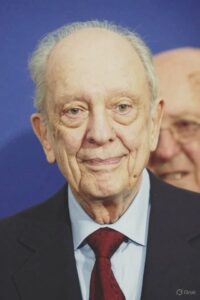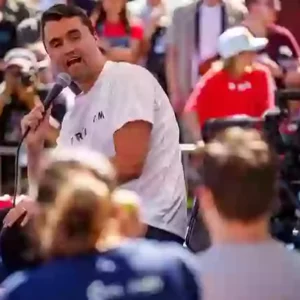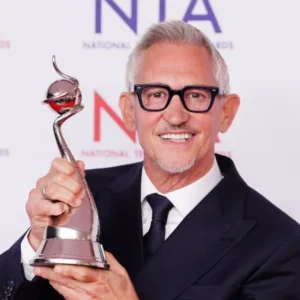
He Made the World Laugh — But Carried a Quiet Sadness Offstage
His face was instantly recognizable. That warm smile, the gently wrinkled eyes, the understated elegance of his humor — all carved him into our memories. To audiences, he was the master of timing, a living legend of comedy, the man who could turn the simplest line into an unforgettable laugh.
But what they didn’t see was what happened when the cameras turned off.
They didn’t see the man who went home in silence.
The man who gave everything to make others happy — while quietly wrestling with the kind of sadness few ever noticed.
This is the story of a beloved comic actor. Not the roles he played. But the man he truly was.
Fame Came Late — But It Came Loud
He didn’t explode onto the scene in his twenties. He wasn’t the overnight sensation. In fact, it wasn’t until he was well into middle age that his face became familiar to millions.
Decades of theater work, character parts, and small-time sketches built the foundation. But he kept going. Patiently. Quietly.
From that point on, he was no longer just an actor — he was America’s comfort. People didn’t just laugh at his jokes. They trusted him. He was safe, relatable, timeless.
But with recognition came pressure. The pressure to be funny. To always smile. To always deliver.
Even on days he felt like disappearing.
He Played Comedy — But Lived with Complexity
Ironically, the man who made millions laugh could rarely bring himself to watch his own performances. “I see the flaws others don’t,” he once told a friend. “I hear the jokes I missed.”
He was his own harshest critic.
Beneath the warm exterior was a man of deep introspection. He read poetry, listened to classical music, and once admitted in a rare interview that he preferred silence to laughter when he was alone.
“I don’t need to laugh when I’m offstage,” he said. “I need to feel.”
And feel — he did.
The Loss That Changed Everything
There was one event in his life that reshaped him permanently: the sudden death of his lifelong friend and fellow comedian. It wasn’t just the loss of a peer — it was the loss of someone who understood the unique burden of being the funny one.
After the funeral, he stopped performing for nearly a year. “The world still wanted jokes,” he whispered to a confidante, “but I had none left to give.”
He eventually returned. Because comedy, for him, wasn’t just a job. It was a service. A mission. A way to bring light to a world that often felt too heavy.
But from that day on, there was something different in his eyes. A flicker of sorrow, even in the loudest laughs.
The Family He Missed While Making Us Laugh
While fans adored him, his children sometimes felt like they grew up in the shadows of a public icon.
“My dad was everyone’s favorite,” one of his sons recalled. “But sometimes we just needed him to be ours.”
He missed birthdays, anniversaries, even the birth of a grandchild — all in the name of filming schedules and tour dates. He left heartfelt letters in hotel drawers, voicemails that said “I’m proud of you,” and boxes of gifts that arrived a week too late.
He loved deeply. But his greatest regret was that he didn’t always show it in time.
The Role That Haunted Him
He had one role — a character in a comedy-drama late in his career — that he almost turned down. It was too personal. Too close to home.
The character was a retired comedian reflecting on his life with a mixture of regret and gratitude.
“I read the script and felt like someone had read my diary,” he admitted.
But he accepted the part. And when the cameras rolled, he cried in a take that wasn’t in the script. The director kept it.
When asked why, he said:
“That wasn’t the character crying. That was me.”
He Never Wanted a Big Farewell
Toward the end, as his health declined, many asked him if he wanted a tribute. A final roast. A celebration. He gently declined.
“I’ve had my applause,” he said. “Let me leave the stage quietly.”
He died peacefully, surrounded by a few loved ones, with old jazz records playing in the background.
The news of his passing broke hearts across the country.
TV networks ran marathons of his greatest episodes. Social media filled with tributes. And suddenly, people realized how much he had meant to them.
But few knew what he had sacrificed to keep them smiling.
Look at His Eyes Again
Next time you see a photo of him — really look.
Look past the suit. Past the smile.
Look into his eyes.
They tell a different story.
Of a man who spent a lifetime giving joy — while quietly longing to be understood.
Of a man who made a career out of comedy — but never stopped carrying sorrow.
Behind every laugh was a silent tear.
Behind every punchline was a piece of his truth.
And that truth… makes his legacy even more powerful.





